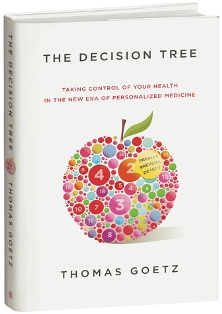January 23rd, 2011 by Medgadget in Better Health Network, Research
No Comments »

 Anyone who’s ever watched football, the American variety, knows how rough of a sport it can be. With 22 fast-moving players (some weighing as much as 350 pounds) scrambling and tackling for possession of the pigskin, injuries are inevitable.
Anyone who’s ever watched football, the American variety, knows how rough of a sport it can be. With 22 fast-moving players (some weighing as much as 350 pounds) scrambling and tackling for possession of the pigskin, injuries are inevitable.
One of the scariest injuries a football player can get is a concussion. With its commonly insidious onset, concussions of the brain are often difficult to diagnose, or immediately treat to avoid long-term consequences.
The National Football League (NFL) has announced that they will be launching a pilot program next season in which accelerometers will be placed in players’ mouthpieces, earpieces, and helmets to analyze how blows to the head relate to the effects and severity of concussions and other traumatic brain injuries. The data could potentially help team doctors diagnose the severity of a concussion within a few minutes. Collected long-term from groups of players, the impact data could help coaches and doctors determine how players get injured and the possible effects of such injuries. Such data could also help engineers design a better football helmet.
As long as the game of football continues to be played, concussions will be pretty much impossible to avoid. However, changing technology and increasing knowledge of traumatic brain injury will hopefully only make football a safer, more enjoyable sport.
Wired article: Impact Sensors Slated for NFL Helmets Next Season…
Medgadget archive: Football helmet technology…
*This blog post was originally published at Medgadget*
January 16th, 2011 by Dinah Miller, M.D. in Better Health Network, Opinion
No Comments »


 I’ve followed in bits and pieces — sometimes for Shrink Rap, sometimes because the issues fill my email inbox, sometimes because there’s no escape. Oh, and lots of the players have familiar names.
I’ve followed in bits and pieces — sometimes for Shrink Rap, sometimes because the issues fill my email inbox, sometimes because there’s no escape. Oh, and lots of the players have familiar names.
In the December 27th issue of Wired magazine, Gary Greenberg writes a comprehensive article on the debates around the revision of the American Psychiatric Association’s (APA) upcoming revision of the Diagnostic and Statistical Manual (DSM) entitled “Inside the Battle to Define Mental Illness.” Do read it. Here’s an excerpt:
I recently asked a former president of the APA how he used the DSM in his daily work. He told me his secretary had just asked him for a diagnosis on a patient he’d been seeing for a couple of months so that she could bill the insurance company. “I hadn’t really formulated it,” he told me. He consulted the DSM-IV and concluded that the patient had obsessive-compulsive disorder.
“Did it change the way you treated her?” I asked, noting that he’d worked with her for quite a while without naming what she had.
“No.”
“So what would you say was the value of the diagnosis?”
“I got paid.” Read more »
*This blog post was originally published at Shrink Rap*
December 23rd, 2010 by Medgadget in Better Health Network, News, Research
No Comments »

Although medical professionals get used to it, the way laboratory data is presented in reports can be quite confusing to the patient. Typically, it is a few columns of black text with poor organization and little guidance to help the patient discern any meaning.
The folks at Wired agreed, and they brought together some Dartmouth physicians and a group of designers to bring a new look to these drab reports. We got to see their refreshing results at TEDMED, but now these prototype reports have been published online:

Link: The Blood Test Gets a Makeover…
*This blog post was originally published at Medgadget*
September 16th, 2010 by Maria Gifford in Better Health Network, Health Tips, Interviews, News, True Stories
No Comments »
 As an invited media guest at Mayo Clinic’s Transform 2010 symposium earlier this week, I had the pleasure of interviewing presenter Thomas Goetz, Executive Editor of Wired Magazine and author of the new book, The Decision Tree: Taking Control of Your Health in the New Era of Personalized Medicine.
As an invited media guest at Mayo Clinic’s Transform 2010 symposium earlier this week, I had the pleasure of interviewing presenter Thomas Goetz, Executive Editor of Wired Magazine and author of the new book, The Decision Tree: Taking Control of Your Health in the New Era of Personalized Medicine.
Thomas writes about science, health, and medicine and believes that engaging people in their health and involving them as participants and decision makers leads to improving their behavior and their health outcomes. He knows there’s a technology emergence of cheaper, better tools that have the ability to offer people a way “in” — from self-tracking gadgets to online disease communities and beyond. Thomas is intrigued by the confluence of ideas and technology that make it an opportune time in healthcare.
 The Decision Tree is based on the premise that our health doesn’t happen all at once, but that it’s a consequence of years of choices — some large, some small, some wise, some poor. A decision tree, therefore, is a “device” that can help make it more obvious that these decisions are something we are actually choosing — a way to externalize the choices that we otherwise make without much thought.
The Decision Tree is based on the premise that our health doesn’t happen all at once, but that it’s a consequence of years of choices — some large, some small, some wise, some poor. A decision tree, therefore, is a “device” that can help make it more obvious that these decisions are something we are actually choosing — a way to externalize the choices that we otherwise make without much thought.
Maria: As executive editor of Wired Magazine, what brought you to write a book about consumer health?
Thomas: I come from a family of healthcare providers — my father is a doctor, my mother is a nurse — so it’s always been a topic area I’ve been comfortable with. A few years ago I felt that I had more to add, and wanted to get more specific in my training, so I got my masters in public health at UC Berkeley. That led me to recognize all sorts of commonalities between the worlds of information technology and public health. At the same time, technologists in Silicon Valley and elsewhere have recognized that healthcare is one of the last industries untouched, in many senses, by the IT revolution. It’s happening now, very quickly, and I wanted to be among the first to not only cover the business, but to cover the way these companies and services will change and improve our lives. Read more »
July 3rd, 2010 by David Kroll, Ph.D. in Better Health Network, Health Policy, Opinion, Research
No Comments »

To further emphasize my admiration for superb sci/med/health writing, I wish to add another writer to my growing blog category of “Journalists, Awesome.”
Via my drug abuse research colleague, DrugMonkey, my attention was drawn to a new Wired magazine article by Brendan I. Koerner entitled, Secret of AA: After 75 Years, We Don’t Know How It Works. I strongly recommend this long-form article for anyone in the field of substance abuse and dependence research, psychology and general clinical research, students of excellent science writing, alcoholics and their family members, and anyone who thinks that good science writing no longer exists.
I don’t want to influence your views any further, other than to say that since I poured my first whiskey and water for my grandmother when I was around 7, I’ve had a longstanding interest in why Alcoholics Anonymous helps so many alcohol-dependent folks kick the disease for decades while others trying the approach continue to crash and burn or otherwise abhor its very tenets, especially the “Higher Power” focus. The reader comments there also reflect this bipolar view of the unorganized organization. Read more »
*This blog post was originally published at Terra Sigillata*
 Anyone who’s ever watched football, the American variety, knows how rough of a sport it can be. With 22 fast-moving players (some weighing as much as 350 pounds) scrambling and tackling for possession of the pigskin, injuries are inevitable.
Anyone who’s ever watched football, the American variety, knows how rough of a sport it can be. With 22 fast-moving players (some weighing as much as 350 pounds) scrambling and tackling for possession of the pigskin, injuries are inevitable.




 I’ve followed in bits and pieces — sometimes for Shrink Rap, sometimes because the issues fill my email inbox, sometimes because there’s no escape. Oh, and lots of the players have familiar names.
I’ve followed in bits and pieces — sometimes for Shrink Rap, sometimes because the issues fill my email inbox, sometimes because there’s no escape. Oh, and lots of the players have familiar names.
 As an invited media guest at Mayo Clinic’s
As an invited media guest at Mayo Clinic’s  The Decision Tree is based on the premise that our health doesn’t happen all at once, but that it’s a consequence of years of choices — some large, some small, some wise, some poor. A decision tree, therefore, is a “device” that can help make it more obvious that these decisions are something we are actually choosing — a way to externalize the choices that we otherwise make without much thought.
The Decision Tree is based on the premise that our health doesn’t happen all at once, but that it’s a consequence of years of choices — some large, some small, some wise, some poor. A decision tree, therefore, is a “device” that can help make it more obvious that these decisions are something we are actually choosing — a way to externalize the choices that we otherwise make without much thought. 








